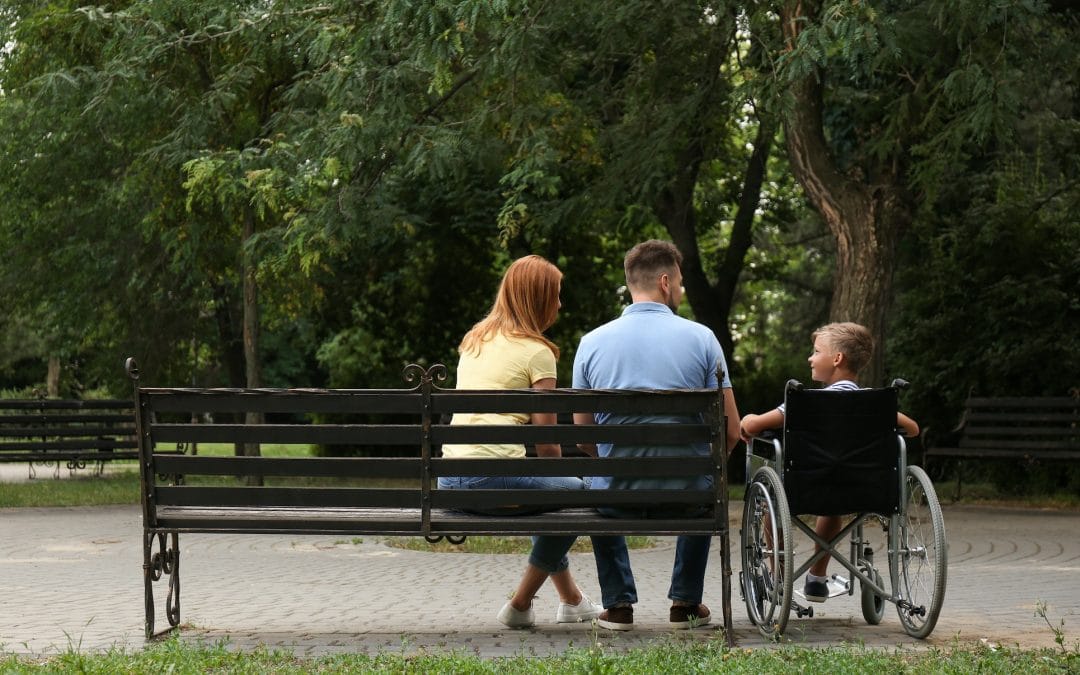
by Alliance VITA | November 20, 2020 | Euthanasia and Suicide, News
In Belgium, the Federal Control Commission for Evaluating Euthanasia (“CFCEE”) has submitted its ninth governmental report presenting the national statistics for euthanasia between 2018 and 2019.
Euthanasia has significantly increased in Belgium, with a 12.6% annual increase in the number of officially recorded cases, although the total number is unknown due to cases which go unreported. Since this act was decriminalized in Belgium, official data show that 22,081 people died from euthanasia.
The report proposes different options to classify the data.
The declarations of euthanasia according to the language (Dutch or French), to the age, with a worrying increase for 30-39 years and 69-89 years, the number of declared cases of euthanasia as compared with the number of non declared cases (an information which cannot be available).
The report investigates on the issue of the advance directives, the place where the doctor carried out euthanasia, and the list of the deseases which have led to a request for euthanasia. Cancer continues to be the leading cause for requesting euthanasia (62%); although requests due to psychological suffering have doubled since the last report.
Half of the 45 patients residing abroad who came to Belgium for euthanasia, were not expected to die soon. For the year 2019, there has 18 euthanasia cases with organ donation.
Euthanasia for “irreversible” psychological suffering is very controversial, as demonstrated in the case of a 38-year-old woman, Tine Nys.
Following her death, her relatives decided to press charges, arguing that she had been falsely diagnosed as autistic to quality for euthanasia. The public prosecution finally ruled that the legal conditions for euthanasia had not been respected.
A comprehensive analysis of the data has recently been published by the European Institute of Bioethics. It concludes that : “over the course of the biannual reports the Commission has interpreted the text of the law with an increasing liberality, and as a result of this the Commission has completely given up its role as a supervisor of a number of legal conditions (e.g. subjectivity of the unbearable nature of suffering, seriousness of the patient’s state of health due to a combination of pathologies that are not serious when taken individually, and the distinction between substantial and non-substantial conditions, with the latter not even justifying a referral to the crown prosecutor,…) .»

by Alliance VITA | November 12, 2020 | Abortion, Coronavirus, News
Once again using the Covid national health crisis as a pretext, the French Minister of Health and Solidarity has issued a new decree on November 7th 2020, to allow drug-induced abortions at home until 7 weeks of pregnancy (i.e. 9 weeks of amenorrhea) instead of 5 weeks in the current law.
A decree was issued to declare a national public health state of emergency from October 17, 2020 and a law was passed on November 7th to extend the state of emergency until February 16, 2021. This law also contains various other measures to deal with the Covid crisis.
The law has yet to be enacted since on the same day, at least sixty senators and sixty deputies requested for it to be referred to the Constitutional Council.
The latest decree voted on November 7th is a repeat edition of the previous one, enacted on April 14th, 2020 under pressure from abortion activists.
Whereas French law originally permitted drug-induced abortions to be carried out at home up to 5 weeks of pregnancy, and in hospital up to 7 weeks, for security reasons, the new “emergency” decree allows a derogation for drug-induced home abortions up to 7 weeks of pregnancy. The High Authority of Health, on the request of the National Health Ministry, has issued an instruction, on April 9th 2020, to insist on the fact that a specific protocol was necessary for drug induced abortions beyond 6 weeks of pregnancy (8 weeks of amenorrhea), which means, that the usual recommended doses of misoprostol should be doubled, even though such high doses are not recommanded and have not received marketing authorization.
The protocol also stipulates that the woman must not be farther than one hour’s distance from the referring medical facility in case of complications, such as hemorrhage (5% risk according to the HAS instructions). Because abortions carried out at a later gestational stage often cause more severe pain, the protocol also advised for someone to be present with the woman, although this cannot be verified.
Last April, several associations, including Alliance VITA, filed a suspensive proceeding (which has yet to be judged on its merits) charging the Health Minister with abuse of power and with putting women’s health at risk.
Beyond the central issue of endangering women’s health, other issues still need to be addressed. Again, the decree specifies that women requesting an abortion can now fulfill the compulsory medical consultation by video, whithout explaining how, in such case, it is possible for women to receive the support and listening services provided for by the law.
Furthermore, in the current procedure, the abortive drugs can only be dispensed by doctors or midwives, whereas in the new decree, it will be possible, by derogation, for pharmacists to deliver abortive drugs directly to the women.
Paradoxically, after by-passing the in-person medical appointment respecting stringent sanitary measures, women are being sent out to buy their prescriptions in a pharmacy, which is a more contagious place.
Indeed, as the authorities did in April, without ever evaluating the impact of such measures, they have now reinstated the decree, all the while neglecting to analyze any data or feedback since the decree was first enacted.
It is surprising to continually advocate these subjective decrees because:
- since the first lockdown, precautionary measures with masks and social distancing have been implemented throughout the country,
- public authorities have also showed a clear incentive to continue caring for all non-Covid patients,
- and no other standards of care have been downgraded by governmental decrees for other medical conditions.
In view of these idiosyncrasies and because women’s health and safety continues to be jeopardized, Alliance VITA is filing a new suspension for abuse of power.

by Alliance VITA | November 6, 2020 | Disabled, News
On November 6, 2020, statistics were published on the social and economic level of French households having one or more children with a disability. The study was carried out by the “DREES” (Directorate of Research, Evaluation and Statistics) for the years 2016 and 2017.
The report found that the parents who receive the Disability Living Allowance (known as “AAEH” in France) are older than other parents. This could sometimes be due to the delay in diagnosing a child’s disability. According to the statistics, when comparing children under the age of 20: “Six out of 10 mothers who receive disability benefits are aged 40 or older, compared to 5 out of 10 for other mothers. The statistics are similar for fathers: 7 out of 10 are 40 or older, compared to 6 out of 10 for other fathers.”
Single-parent households account for 30% of those who receive a disability allowance, thus “7 points higher than other families with children under the age of 20.”
In addition, those from underprivileged backgrounds are more likely to receive disability benefits. The poverty could result from the fact that a mother with a handicapped child has little time to find a new partner, or from profound cognitive or psychological disorders, which become apparent during schooling.
The report also shows that in households with a child having a disability, one of the parents does not work, and in single-parent households, 51% do not have a professional activity. The statistics reported that “42% of mothers with a disabled child are employed on a part-time basis compared to 31% of other mothers”.
As a conclusion, the report shows that “24% of households receiving disability benefits live below the level of poverty line, compared to 17% of other households with children under the age of 20”.
![[Press Release] Alliance VITA Warns Against Social Isolation of Vulnerable Persons](https://www.alliancevita.org/wp-content/uploads/2020/04/PersonneAgee-1080x675.jpg)
by Alliance VITA | October 29, 2020 | End of life, Coronavirus, Old age and Dependency
A few days before All Saints Day, and following President Macron’s declaration of a new national lockdown in France, Alliance VITA warns against the risk, for vulnerable people, in particular elderly people, of becoming more and more isolated, resulting from the imposed confinement, from not knowing the cause or progression of the disease, and from the closed in attitude of many citizens.
Undoubtedly, many families have close family ties, especially inter-generational, to help alleviate age-related and pandemic-induced vulnerability.
Nonetheless, it is currently estimated that approximately 4 million individuals feel extremely lonely. For those who don’t live in proximity to close relations, the new lockdown could unsurprisingly lead to more feelings of despair and discouragement.
Alliance VITA therefore wishes to warn against the effects of social disconnectedness on the physical and mental health of the elderly. The idea is not to contest the recommended protective measures, but to urge all citizens to keep in contact with the elderly who are isolated and unrelated, in addition to one’s own loved ones.
Just when so many families are now grieving the loss of loved ones due to the COVID pandemic, others want to turn November 2nd, meant for remembering the dead, into an occasion to promote euthanasia. On the contrary, VITA encourages people to fight against the social disconnectedness of the most vulnerable. In the coming weeks an awareness campaign will focus on ways to re-establish or strengthen inter-generational ties. Especially during these difficult times which affect the whole country no one should feel unworthy to be loved and cared for.
For the past 17 years, Alliance VITA has been offering a listening service, SOS end-of-life, for questions related to serious illness or death: bereavement or ethical dilemmas related to illness, extreme dependence, social assistance or medical care.

by Alliance VITA | October 23, 2020 | Abortion, News
A new amendment has just been adopted by French MP’s allowing midwives to perform surgical abortions on an experimental basis, as part of the bill to revise the National Health Insurance Program, referred to as “Social Security”.
The authors of this bill, tabled by the “MODEM” party (Democratic movement), explained that they have “to learn from the consequences of not having enough doctors to perform abortions, especially in rural areas.” This measure had previously been rejected in committee meetings. In spite of the absence of any reliable data and impact studies, the Health and Solidarity Minister, Olivier Véran, representing the government, supported this controversial provision.
A minority party, Ecology Democracy and Solidarity, had originally introduced this measure in a recent bill for extending abortion conditions, where it was rejected at the first reading.
Since this measure appeared unlikely to pass, the Health Minister is now using budgetary legislative guidelines as a ploy to force through amendments on the abortion law, in order to avoid opposition and debate.
Unlike physicians, midwives are neither trained, nor qualified to perform surgery. This issue raises obvious questions about the safety and the actual role of midwives especially since they would then have to carry out abortions up to 12 weeks.
Alliance VITA persists in denouncing this drive for more abortions and calls on the government’s responsibility to conduct an unbiased epidemiological study on the causes, conditions and consequences of abortion.




![[Press Release] Alliance VITA Warns Against Social Isolation of Vulnerable Persons](https://www.alliancevita.org/wp-content/uploads/2020/04/PersonneAgee-1080x675.jpg)
